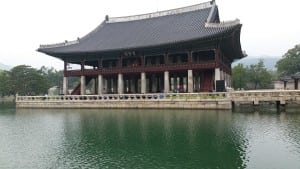 In Korea, it is vital that you take proactive steps to protect your trade secrets, especially when dealing wiht employees or former employees. A properly drafted confidentiality agreement which contains a restrictive covenant can be an effective tool for preventing trade secret disclosure. But what is meant by the term "restrictive covenant?" It can cover a wide array of devices including:
In Korea, it is vital that you take proactive steps to protect your trade secrets, especially when dealing wiht employees or former employees. A properly drafted confidentiality agreement which contains a restrictive covenant can be an effective tool for preventing trade secret disclosure. But what is meant by the term "restrictive covenant?" It can cover a wide array of devices including:
Some restrictive covenants are more enforceable in Korea than others. It is therefore helpful to look at the various kinds of restrictive covenants that are commonly used in Korea to determine which ones to use.The three most common types of restrictive covenants in Korea are:
- The Confidentiality Agreement
- The Non-Solicitation Agreement
- The Non-Compete Agreement
1. Confidentiality Agreement - the Confidentiality Agreement is generally enforceable by Korean courts. However, as in other countries, if an employee moves to another company, it may not be that effective in preventing an employee from using what he has learned from his previous employer or proving her has taken trade secrets or confidential information. It can however, when used appropriately in an exit interview, dissuade or remind an employee of his obligation of confidentiality.
2. The Non-Solicitation Agreement- the Non-Solicitation Agreement is generally enforceable. It has the same degree of effectiveness as a confidentiality agreement and to that extent should be used. Obviously, it may be hard to prove an employee or former employee is raiding the company or attempting to induce employees to leave the company.
3. Non-Compete Agreement- the enforceability of Non-Compete Agreements in Korea has not yet been completely settled. It is however, the most effective restrictive covenant in Korea when dealing with former employees and the trend in Korea is for courts to enforce Non-Compete Agreements. Among the reasons that Non-Compete Agreements are so effective is that:
( i) The main reason a company needs a non-compete is to protect a legitimate business interest. Legitimate business interests are similar to trade secrets or proprietary information but easier to prove than trade secrets; and
(ii) In Korea, unlike trade secret misappropriation actions, there is no need for direct evidence- i.e. you do not have to show trade secret misappropriation or a loss of proprietary information.
The key in drafting a successful non-compete agreement is to remember that the shorter the non-compete term is (say 1-2 years) the more inclined courts are to accept it. If a term is for 3-5 years, the court will probably invalidate it. Also, though consideration is not an essential part of a non-compete agreement, if consideration is paid, there is a greater chance that Korea courts will accept it.It is highly recommended that a company use all restrictive covenants if possible to protect misappropriation of trade secrets. A well drafted non-compete agreement may offer the most protection from employees trying to leave to join competitors. Each non-compete agreement should be tailored to the specific employee and should renewed on a periodic basis.
All of these types of restrictive covenants have a potential role to play in an ongoing effort to protect trade secrets. It is advised that to ensure the proper use of restrictive covenants, you conduct an audit of outstanding agreements to check whether appropriate restrictive covenants are properly used. So, check your agreements with regards to restrictive covenants. Are they up to date? Do you have the right policies in place? Remember, in Korea you should take a proactive stand in protecting your trade secrets.